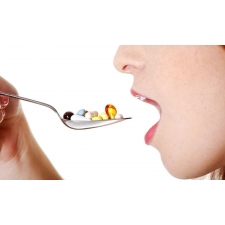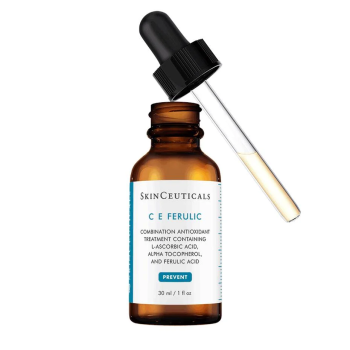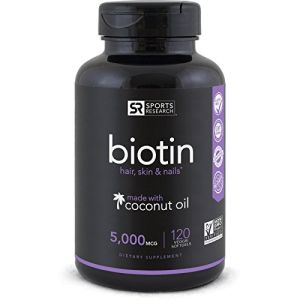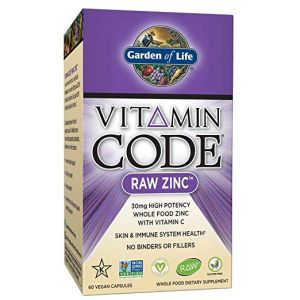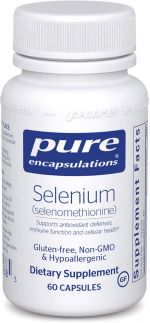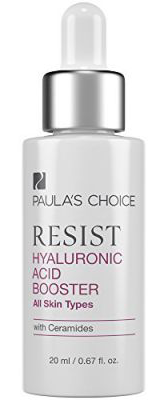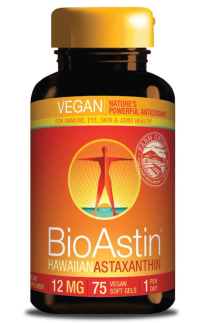Your skin is the largest organ in your body. It is a vibrant, living system that needs nourishment to stay healthy. Here are some of the best vitamins, minerals, and other nutrients for your skin, both to eat and to apply topically.

Vitamin C
Vitamin C (ascorbic acid) is perhaps the best vitamin for the health and beauty of your skin. First and foremost, it is a powerful antioxidant. This means vitamin C can get rid of harmful reactive oxygen species that cause damage do your skin, otherwise resulting in wrinkles, age spots, and sometimes even skin cancer.1, 2 This vitamin also can boost your immune system, which helps repair your skin when it is damaged or has an infection. It even helps protect against damage from UV radiation from sunlight.3
Taking vitamin C orally as a supplement is a great idea for your whole-body health, including your skin. The less inflammation and fewer oxygen radicals in your body, the healthier you will be and the slower you will show signs of aging. It also inhibits enzymes that break down collagen, the protein that keeps your skin firm and elastic.1
Vitamin C is a beneficial additive to many cosmetic products, including moisturizers, cleansers and peels. Topical vitamin C is especially helpful for promoting skin rejuvenation following other skin care routines,4 such as microneedling.

Biotin (Vitamin B7)
Biotin is one of the B vitamins, important for many processes in your metabolism. One important role it plays is in zinc homeostasis - maintaining a healthy level of zinc in your bloodstream and throughout your body. Zinc is very important for the health of your skin. Biotin deficiency can lead to dermatitis and other skin conditions.6

Zinc
Zinc is an essential nutrient for skin health. Because of this, it is added to many cosmetic products and topical products to treat skin conditions. Zinc oxide is an ingredient in baby powder to treat incontinence-associated dermatitis (diaper rash) and in calamine lotion to treat mild itching. It is also useful in healing ulcers and warts, and can prevent bacterial infections in wounds.7-9
Zinc also contributes to skin health when taken orally. Several different skin conditions can be caused by zinc deficiency and taking zinc supplements can help alleviate them.

Selenium
Selenium is a trace mineral that is used as a component for a few very important enzymes in your body. Several selenoproteins - proteins that contain selenium - act as antioxidants, protecting your skin and other tissues from damage from oxygen radicals.10

Hyaluronic Acid
Hyaluronic acid is a type of polysaccharide,a long organic molecule similar to sugars and starches. It is an important structural molecule that your cells use to build the protein network that holds your cells and organs together. Hyaluronic acid is abundant in connective tissues, particularly your skin. In your epidermis - the top layer of your skin - hyaluronic acid has many functions. It holds in moisture, allows nutrients to pass through, neutralizes harmful reactive oxygen species and promotes wound-healing when your skin is damaged.11, 12
Your body produces a large amount of its own hyaluronic acid. However, as you age, the hyaluronic acid content in your skin decreases. The loss of this important molecule is associated with dehydration and loss of structural integrity. This leads to wrinkles, sagging, and dryness in your skin.11

Astaxanthin
Astaxanthin is relatively new to the natural product scene. Derived from krill, it is an extremely strong antioxidant, around 100 times more powerful than vitamin E.13 While still not that well studied, early research shows great promise in astaxanthin as a natural anti-aging agent. You can take it orally, which will help reduce inflammation throughout your body and protect your skin against harmful free radicals.14
2] JH Jeong, MB Kim, C Kim, and JK Hwang. 2018. "Inhibitory effect of vitamin C on intrinsic aging in human dermal fibroblasts and hairless mice." Food Sci Biotechnol. 27(2):555-564.
[3] A Gegotek, E Ambrozewicz, A Jastrzab, I Jarocka-Karpowicz, and E Skrzydlewska. 2019. "Rutin and ascorbic acid cooperation in antioxidant and antiapoptotic effect on human skin keratinocytes and fibroblasts exposed to UVA and UVB radiation." Arch Dermatol Res. 311(3):203-219.
[4] T Raschke, U Koop, HJ Dusing, A Filbry, K Sauermann, S Jaspers, H Wenck, and KP Wittern. 2004. "Topical activity of ascorbic acid: from in vitro optimization to in vivo efficacy." Skin Pharmacol Physiol. 17(4):200-6.
[5] SS Shapiro and C Saliou. 2001. "Role of vitamins in skin care." Nutrition. 17(10):839-844. http://www.sciencedirect.com/science/article/pii/S0899900701006608
[6] Y Ogawa, M Kinoshita, T Sato, S Shimada, and T Kawamura. 2019. "Biotin Is Required for the Zinc Homeostasis in the Skin." Nutrients. 11(4):
[7] M Gupta, VK Mahajan, KS Mehta, and PS Chauhan. 2014. "Zinc therapy in dermatology: a review." Dermatol Res Pract. 2014709152.
[8] AB Lansdown, U Mirastschijski, N Stubbs, E Scanlon, and MS Agren. 2007. "Zinc in wound healing: theoretical, experimental, and clinical aspects." Wound Repair Regen. 15(1):2-16.
[9] JA Khattar, UM Musharrafieh, H Tamim, and GN Hamadeh. 2007. "Topical zinc oxide vs. salicylic acid-lactic acid combination in the treatment of warts." Int J Dermatol. 46(4):427-30.
[10] Z Cai, J Zhang, and H Li. 2018. "Selenium, aging and aging-related diseases." Aging Clin Exp Res.
[11] E Papakonstantinou, M Roth, and G Karakiulakis. 2012. "Hyaluronic acid: A key molecule in skin aging." Dermato-endocrinology. 4(3):253-258. https://www.ncbi.nlm.nih.gov/pubmed/23467280 https://www.ncbi.nlm.nih.gov/pmc/PMC3583886/
[12] WY Chen and G Abatangelo. 1999. "Functions of hyaluronan in wound repair." Wound Repair Regen. 7(2):79-89.
[13] M Guerin, ME Huntley, and M Olaizola. 2003. "Haematococcus astaxanthin: applications for human health and nutrition." Trends Biotechnol. 21(5):210-6.
[14] N Ito, S Seki, and F Ueda. 2018. "The Protective Role of Astaxanthin for UV-Induced Skin Deterioration in Healthy People-A Randomized, Double-Blind, Placebo-Controlled Trial." Nutrients. 10(7):
Search the blog
Article Categories
- All Articles (95)
- Rating Charts (1)
- Beauty & Skincare (17)
- FAQ (0)
- Hair Care (9)
- Health & Wellness (12)
- Anti-Aging (4)
- Kid's Health (0)
- Makeup (2)
- Men's Health (2)
- Oral Care (3)
- Sunscreen (7)
- Skin Tools & Treatments (10)
- Supplements (26)
- Videos (0)

